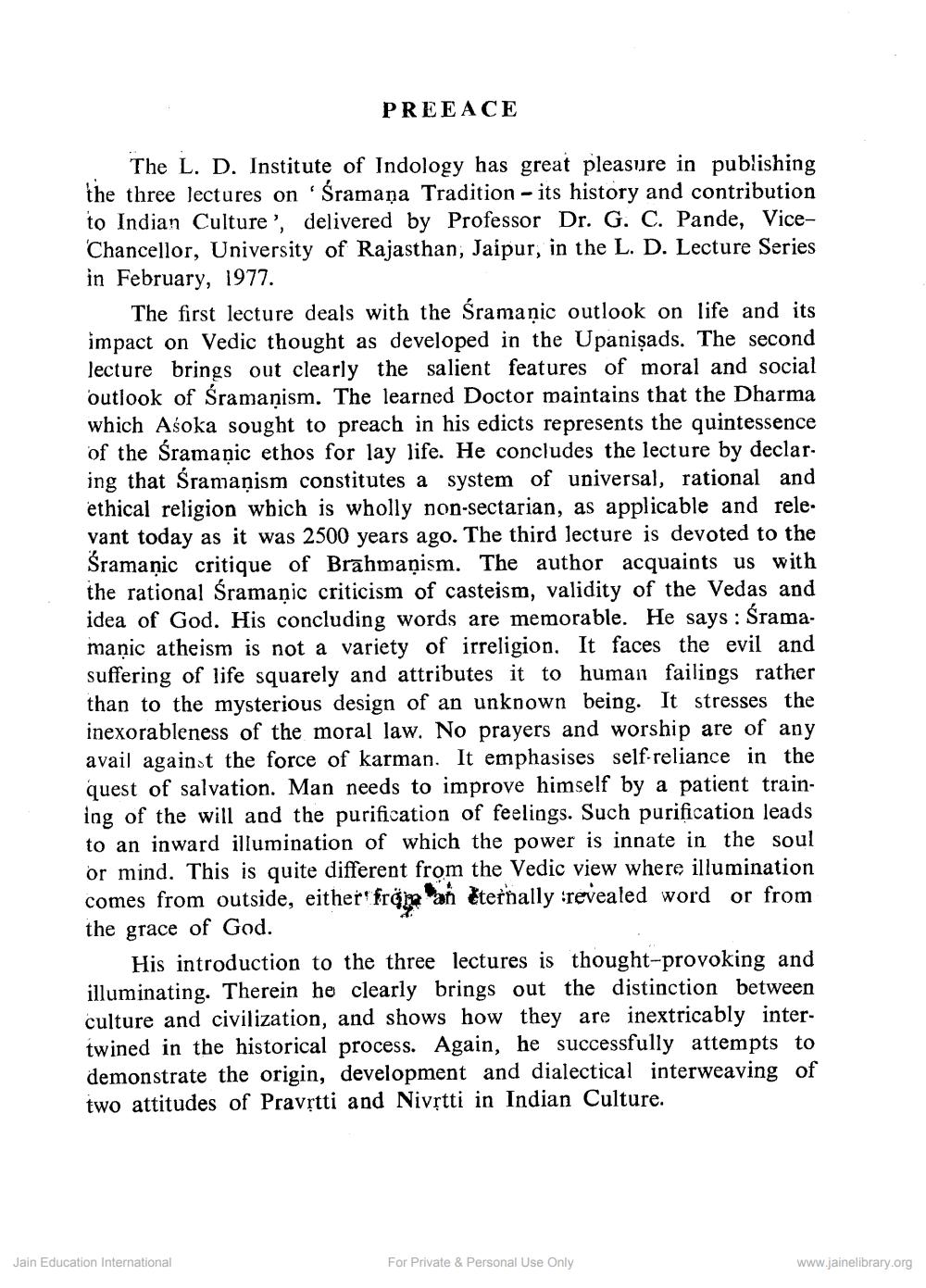Book Title: Sramana Tradation Author(s): G C Pandey Publisher: L D Indology Ahmedabad View full book textPage 4
________________ PREEACE The L. D. Institute of Indology has great pleasure in publishing the three lectures on Śramaņa Tradition - its history and contribution to Indian Culture', delivered by Professor Dr. G. C. Pande, ViceChancellor, University of Rajasthan, Jaipur, in the L. D. Lecture Series in February, 1977. The first lecture deals with the Śramaņic outlook on life and its impact on Vedic thought as developed in the Upanișads. The second lecture brings out clearly the salient features of moral and social outlook of Śramaņism. The learned Doctor maintains that the Dharma which Aśoka sought to preach in his edicts represents the quintessence of the Śramanic ethos for lay life. He concludes the lecture by declaring that śramanism constitutes a system of universal, rational a ethical religion wbich is wholly non-sectarian, as applicable and rele. vant today as it was 2500 years ago. The third lecture is devoted to the Sramanic critique of Brahmanism. The author acquaints us with the rational Gramanic criticism of casteism, validity of the Vedas and idea of God. His concluding words are memorable. He says : Śramamanic atheism is not a variety of irreligion. It faces the evil and suffering of life squarely and attributes it to human failings rather than to the mysterious design of an unknown being. It stresses the inexorableness of the moral law. No prayers and worship are of any avail against the force of karman. It emphasises self-reliance in the quest of salvation. Man needs to improve himself by a patient training of the will and the purification of feelings. Such purification leads to an inward illumination of which the power is innate in the soul or mind. This is quite different from the Vedic view where illumination comes from outside, either from an eternally revealed word or from the grace of God. His introduction to the three lectures is thought-provoking and illuminating. Therein he clearly brings out the distinction between culture and civilization, and shows how they are inextricably intertwined in the historical process. Again, he successfully attempts to demonstrate the origin, development and dialectical interweaving of two attitudes of Pravrtti and Nivịtti in Indian Culture. Jain Education International For Private & Personal Use Only www.jainelibrary.orgPage Navigation
1 2 3 4 5 6 7 8 9 10 11 12 13 14 15 16 17 18 19 20 21 22 23 24 25 26 27 28 29 30 31 32 33 34 35 36 37 38 39 40 41 42 ... 90
